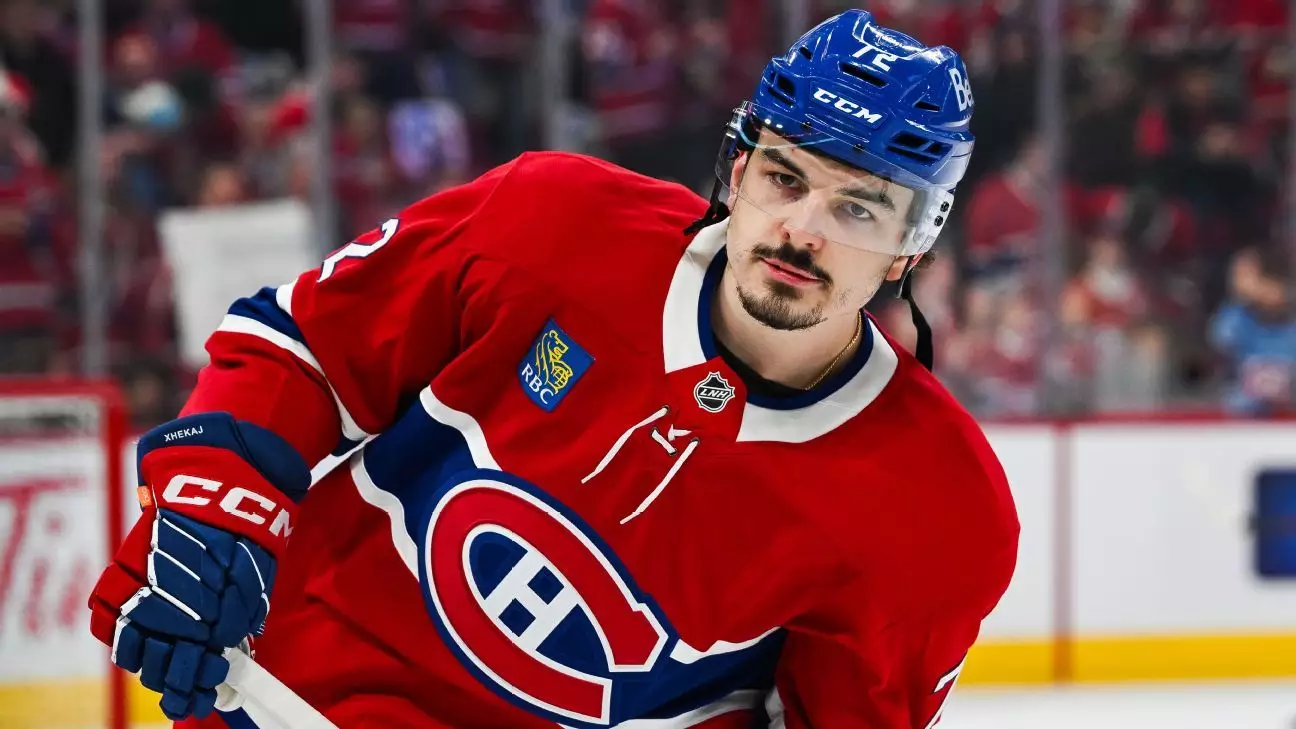As the Washington Capitals and the Montreal Canadiens engage in a fiercely competitive playoff series, the stakes have never been higher. With each game, emotional intensity escalates, transforming the ice into a battleground that combines sport with sheer animosity. The recent playoff dynamics have been characterized by a blend of thrilling hockey and unpredictable antics, culminating in fines for both teams due to unsportsmanlike conduct. The rivalry seems palpable, with neither side willing to back down, leading to both verbal and physical confrontations. This series exemplifies not only the competitive spirit of hockey but the extent to which players will go to secure victory.
The Impact of Fines and Suspensions
The financial penalties levied against teams and players serve as a testament to the series’ fiery nature. Both teams were recently fined $25,000 for pregame antics—indicative of the heightened emotions boiling over even before the puck drops. Individual fines, including those of Montreal’s Arber Xhekaj and Washington’s Dylan McIlrath, further illustrate the league’s effort to maintain decorum amidst the chaos. A total of 37 penalties have been handed out thus far, reflecting a play style that prioritizes physicality over finesse.
For the players, these fines are not just monetary; they serve as a reminder of the league’s commitment to sportsmanship. However, it raises questions about how the competitive nature of the playoffs can blur the lines of acceptable behavior. Should a player be punished for expressing their fervor in the heat of the moment, or do these incidents detract from the integrity of the game?
Emotional Warfare: Psychological Factors at Play
As Montreal’s Brendan Gallagher poignantly noted, every playoff season brings its own emotional rollercoaster, particularly in the first round. The proximity to victory elicits a raw intensity that can sometimes lead to reckless play and emotional outbursts. The fans and media alike feed into this narrative, amplifying the tensions through their scrutiny and expectations.
Coach Martin St. Louis’s frustration with officiating serves as a strategic diversion, allowing his players to focus on their game rather than the ref’s decisions. Gallagher’s response to St. Louis’s comments suggests a measure of psychological resilience. Rather than dwell on perceived injustices, the Canadiens are aiming for constructive adaptation, believing that they can channel their frustrations into focused gameplay. In a high-stress environment like the playoffs, these psychological strategies can be pivotal in turning the tide.
Special Teams and Game Dynamics
Another vital aspect of this series has been the battle of special teams. With Montreal boasting a 13-10 advantage in power plays, their ability to capitalize has been remarkable, outscoring Washington 5-1 under these conditions. This statistic reveals that while the teams may be equally matched in physical prowess, the Canadiens are currently outmaneuvering the Capitals in crucial moments. Washington’s coach, Spencer Carbery, remains undeterred by the statistics, emphasizing the need to earn power plays through disciplined play. The psychological game of rewarding good behavior over aggression becomes essential as the playoffs progress.
As Game 5 approaches, every detail becomes magnified. Washington has the opportunity to gear up with the potential return of forward Aliaksei Protas, which could shift the balance further in their favor. The notion of strategic player availability creates additional layers of intrigue; how will each coach adjust to the availability—or absence—of key players on their roster?
The conflict brewing between the Washington Capitals and the Montreal Canadiens extends beyond the sport of hockey. It represents the human condition of competition fueled by passion, desire, and the need for recognition. The stakes of playoff hockey are such that every decision, every hit, and every fine adds to the intricate web of rivalry that defines this series. As teams navigate through the complexities of officiating, emotional resilience, and special teams strategies, they also grapple with the broader implications of their actions—both on and off the ice. In this gripping saga of athletic competition, it is evident that the essence of the game transcends mere skill; it’s about heart, grit, and a relentless pursuit of victory.

